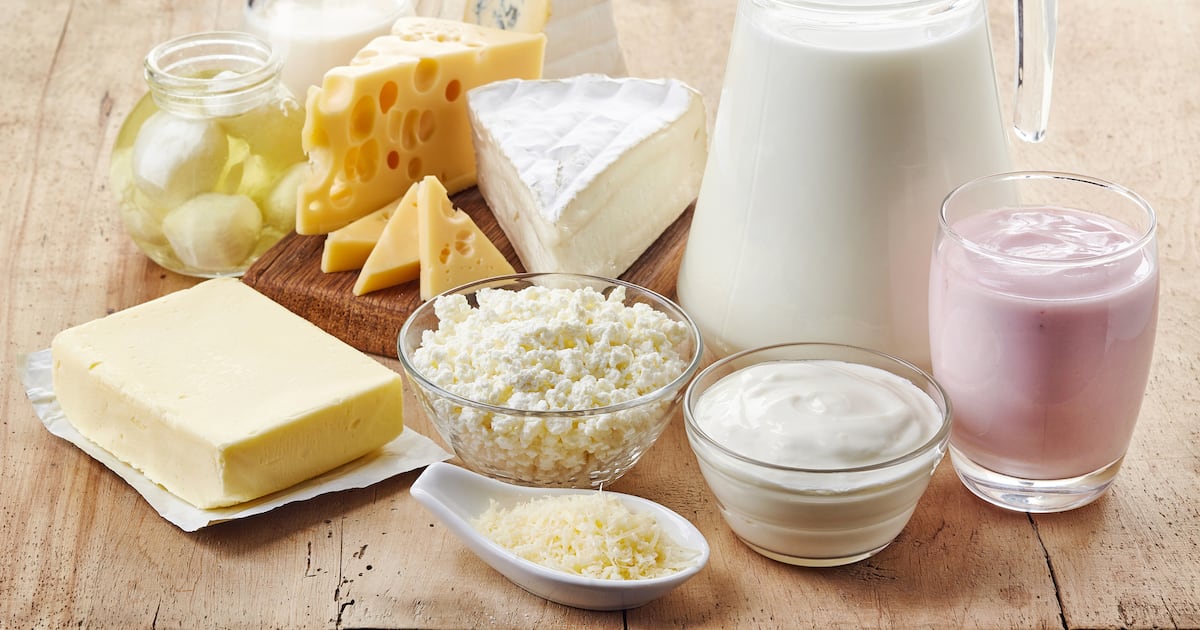The US-based National Milk Producers’ Federation (NMPF) has blamed the EU’s geographical indications scheme for US dairy’s export deficit in Europe.
The trade body – which represents two thirds of US commercial dairies – also called out the bloc’s trade agreements with third countries where it has sought protection of common names such as parmesan.
NMPF’s comments form part of a long-standing conflict between the two sides over the use of common names – and come at a critical juncture for EU-US trade relations as Europe seeks a way to avert a hike in tariffs.
The US dairy trade organization, alongside the Consortium for Common Food Names (CCFN) and the US Dairy Export Council (USDEC) addressed the long-term issue as part of a response to the 2025 Special 301 Report, released this week by the Trump administration.
The report outlines major global intellectual property concerns, including the EU’s GI policies. The US trade bodies say these efforts “restrict the use of widely recognized food and beverage terms to only specific European producers and effectively cut US producers out of certain key markets”.
“Gregg Doud, president and CEO of NMPF, said: “Last year, the United States imported nearly $3 billion more in dairy products from the European Union than we exported to Europe. Europe’s abuse of the GI system is a significant reason for that deficit.
“EU GI schemes create a two-tiered system that benefits European producers and stamps out competition. We appreciate that USTR is addressing this unfair practice and look forward to continuing to work together to level the playing field for US dairy producers.”
Jaime Castaneda, executive director of CCFN, commented: “The European Union’s approach to geographical indications is entirely unacceptable. It intentionally crowds out fair competition by restricting market access for US and international producers.
“Too many trading partners have been coerced into imposing trade barriers for products using common food and beverage names. We appreciate United States Trade Representative’s ongoing recognition of this issue but urge the US government to stop trading partners to succumbing to European pressures and imposing trade barriers on US products.”
Krysta Harden, president and CEO of USDEC, added: “Europe’s misuse of geographical indications is nothing more than a trade barrier dressed up as intellectual property protection.
“It not only unfairly strips American producers of the right to use common, widely understood terms, but significantly handcuffs commercial export opportunities. We welcome USTR’s focus on this issue and appreciate the administration’s dedication to protecting US market access rights.”
EU ‘very open-minded’ on common name protections
In response, secretary general of the European Dairy Association (EDA) Alexander Anton told DairyReporter:
“Despite all our efforts over the last years, we have – obviously – not yet been successful in explaining both, the idea and the implementation of the European Quality Policy to our US partners. In many if not most other world regions, the idea is welcome and taken up: it is all about quality, transparency and, yes, supporting the local communities in preserving a cultural heritage and culinary treasures.
“Now, the NMPF is focussing on third countries – first of all, the European Quality Policy does not hinder in any way the sales of US cheese excellence around the globe.
“That’s also one of my takeaways from the ADPI/ABI conference in Chicago earlier this week: the external trade figures for US cheese have developed over the last years in a very positive way.
“When it comes to trade agreements that other world regions conclude with the EU, the question of local protection of certain product names is always treated very carefully and, of course, in mutual respect and consensus. According to the national circumstances, that include also the consumer perception and expectations, different protection levels are defined in those agreements.
“This clearly shows that the EU, as a trusted global trade partner, is approaching these questions always very open-minded and is open for discussions – and we, the European lactopshère, are more than willing to discuss with our US partners not only the concept of our EU Quality Policy and its implementation, but also our future US-EU (dairy) trade relationship.
“This is especially true in todays’ very complex global trade environment.”
